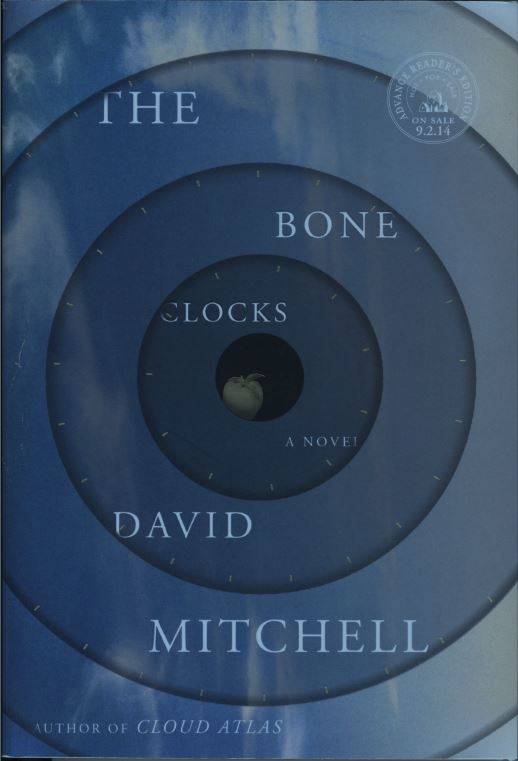 Back in the summer of 2012, when I learned that the Wachowski Brothers' directed Cloud Atlas, starring Tom Hanks and Halle Berry, was to be released in October, I decided it was about time that I read the novel, considering that David Mitchell's Cloud Atlas
Back in the summer of 2012, when I learned that the Wachowski Brothers' directed Cloud Atlas, starring Tom Hanks and Halle Berry, was to be released in October, I decided it was about time that I read the novel, considering that David Mitchell's Cloud AtlasCloud Atlas was even one of the few books I added to my Goodreads shelf -- that's how intrigued I was with the prospect of finally reading this book. The story is divided into seemingly unrelated sections: The Pacific Journal of Adam Ewing, Letters from Zedelghem, Half-Lives: The First Luisa Rey Mystery, and The Ghastly Ordeal of Timothy Cavendish -- all well-written and as intriguing as I had hoped: great stuff. Then I got to the section An Orison of Sonmi-451 -- an interview with a genetically engineered fabricant. And the interview seemed to go on and on and... and I became bored and set the book down. Never to pick it up again. In fact, just the other day I realized the title was still listed as being read on my Goodreads shelf, about two years later! (P.S. I haven't seen the movie yet either; I'll wait now for it to be available on cable.)
But, I'm not giving up on David Mitchell, and, in fact, courtesy of Suvudu.com, I now have an Advance Reader's Edition of The Bone Clocks to read at my leisure.
to read at my leisure.
Here's an excerpt from the publisher's PR sheet that was inside the book:
Following a scalding row with her mother, fifteen-year-old Holly Sykes slams the door on her old life. But Holly is no typical teenage runaway: A sensitive child once contacted by voices she knew only as "the radio people," Holly is a lightning rod for psychic phenomena, and she has caught the attention of a cabal of dangerous mystics—and their enemies. But her lost weekend is merely the prelude to a shocking disappearance that leaves her family irrevocably scarred. This unsolved mystery will echo through every decade of Holly's life, affecting all the people Holly loves—even the ones who are not yet born. A Cambridge scholarship boy grooming himself for wealth and influence; a conflicted father who feels alive only while reporting from occupied Iraq; a middle-aged writer mourning his exile from the bestseller list—all have a part to play in this surreal, invisible war on the margins of our world.
Mitchell's writing has that underlying element of the "fantastic" -- science fiction in Cloud Atlas, and evidently the supernatural in The Bone Clocks -- and yet, his fiction is considered "mainstream," as is the fiction of W. P. Kinsella, whom I wrote about here, and Kazuo Ishiguro, whom I wrote about here, to name only two others. And gawd help us if we should ever refer to these individuals as science fiction writers.

